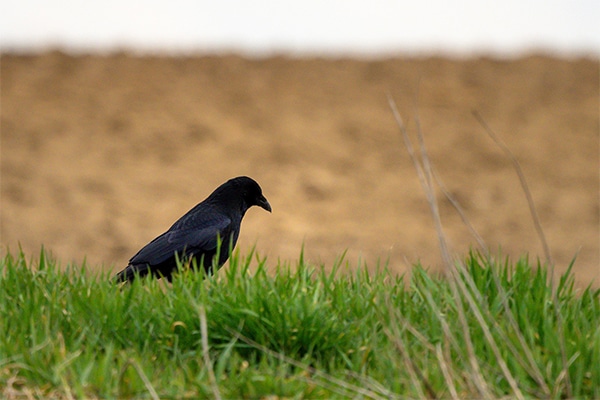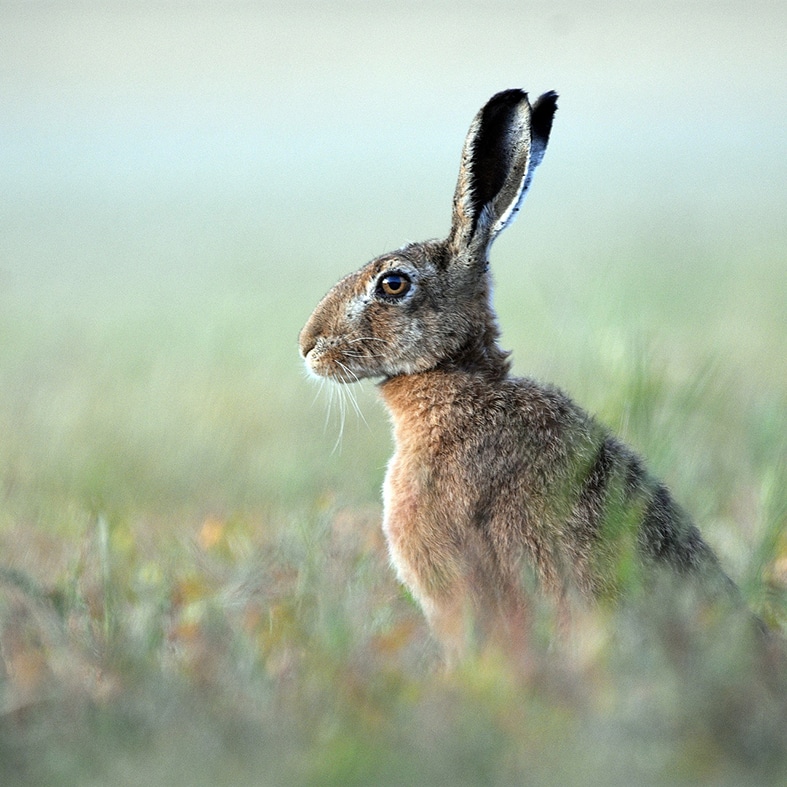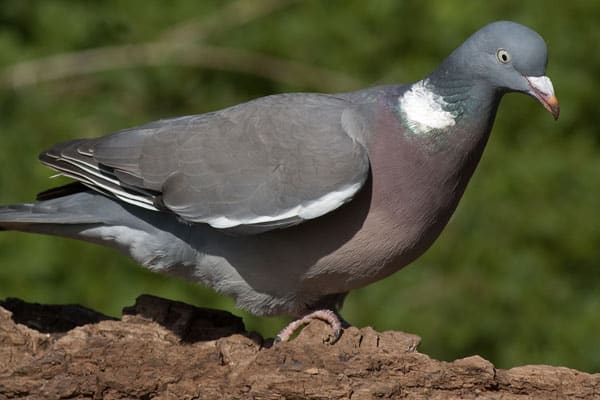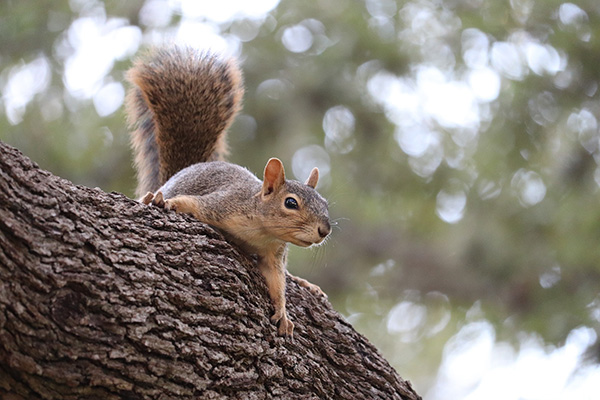
How to make a ladder trap
A strategically set ladder trap will catch birds when other methods of control either won’t work or are impractical.
Get information on the legal shooting season for mammals and birds in the UK.
Learn about our current conservation projects and how you can get involved.
Comprehensive information and advice from our specialist firearms team.
Everything you need to know about shotgun, rifle and airgun ammunition.
Find our up-to-date information, advice and links to government resources.
Everything you need to know on firearms law and licensing.
All the latest news and advice on general licences and how they affect you.


Pest and Predator Control Brown hares – England only
This code sets out the law and best practice for ensuring an appropriate and workable balance between the welfare and conservation of brown hares (Lepus europaeus), their status as game species, and their ability to cause serious damage to crops.
The code has been drawn up by representatives of farming, game and wildlife, and shooting interests. It sets out both statutory and voluntary measures to address a wide range of circumstances and needs.
Hares are an important and much-valued component of our natural heritage and biodiversity. In some parts of their range, they are scarce, but in others, they can be extremely abundant and need control.
The law allows them to be killed both as a game species and to prevent serious damage to farm crops. Voluntary measures supplement the law to cover the differing and changing needs that arise.
This code specifies that any killing or control must be undertaken by competent people who are aware of their responsibilities as game shooters or as pest controllers. Any killing or control must always be carried out in strict accordance with the law.
Brown hares are defined as ‘ground game’ by the Ground Game Act 1880. This Act gives a statutory right to every occupier of land to take or kill ground game; this right may be shared with other persons, such as the holder of the sporting rights.
Subject to certain conditions, the occupier may also authorise others to control hares, but only they and one other authorised person may use a firearm.
This means that every occupier (farming tenant) retains the right to kill hares whether or not they hold shooting rights and therefore obviates claims for compensation for damage caused by hares.
Brown hares are defined as ‘game’ by the Game Act 1831. This act prohibits the shooting of game species on Sundays and Christmas Day.
The Hares Preservation Act 1892 makes it an offence to sell, or expose for sale, any hare or leveret between the months of March and July inclusive. This prohibition removes any commercial incentive to kill hares during the main breeding season but does not apply to imported hares.
Like so much farmland wildlife, hares have suffered from agricultural intensification and have declined in Britain and the rest of Europe during the 20th century. The brown hare is subject to a species conservation plan; further advice is available from the Game and Wildlife Conservation Trust (GWCT).
From game bag records and other surveys, we believe the number of hares has generally remained stable since the 1990s, probably thanks to agri-environment schemes.
The major determinants of hare numbers have been shown to be the prevailing farming practices, cropping and predation. Where habitat is good and foxes are well controlled, hares can multiply very quickly and become locally abundant to the point of being a pest.
In some regions (the pastoral landscapes of western England, Wales and southern Scotland) the prevailing habitats are not suited to maintaining hare populations, so some areas have few or no hares.
Land managers and shoots can make important contributions to improving the habitats for hares. The GWCT and the Mammal Society have produced practical advice for farmers and landowners for improving habitats to increase hare numbers where they are low. This advice is available from the GWCT.
Control to prevent damage to crops should be carried out in the winter months of January and February when crops and vegetation are low and hares are easily visible.
These months avoid the main breeding season and thereby reduce any risk to dependent young. Control later in the spring should be avoided if possible.
Consideration should be given to the most effective and selective method of control. This may involve the use of a rifle at dawn or dusk, and even during the night using bright lamps.
Those shooting hares must:
Provision for retrieving shot hares, such as using properly handled retrieving dogs, is essential.
Those controlling hares with a rifle must ensure that their firearm certificate is appropriately conditioned for such use.
So far as is reasonable, those who shoot should always seek to avoid or minimise disturbance to local residents as well as other countryside users.
Hare shoots are often organised in areas where hare numbers are high and crop damage is a serious risk. These are normally carried out in February, avoiding the main breeding season and following the close of the gamebird shooting season. Some organised hare shoots cover a large area of surrounding farmland.
Only holders of the sporting rights can reasonably expect to organise hare drives. Occupiers (tenant farmers), due to the limitations of their rights to authorise others to use firearms, could only do this with consent from the landowner or sporting tenant who has the right to take hares.
Those who organise a hare shoot should comply with the Code of Good Shooting Practice. The organiser should fully brief all those present on the plans for the day; this should include a briefing on strict safety measures that must be observed at all times.
If a shoot has five or more employees at any one time it is a legal requirement to have a written health and safety policy. The Code of Good Shooting Practice and advice on completing a health and safety policy are available here.
A hare shoot may involve beaters, or shooters carrying guns, who drive the hares towards a strategically placed line of Guns, i.e. shooters with shotguns.
Hare shoots should not take place after the end of February other than in exceptional circumstances.
Hares are a valuable source of high-quality food for the table and should be handled and processed in a way which ensures they can be enjoyed as such. Organisers of hare shoots must not sell dead hares from 1 March to 31 July (Hares Preservation Act 1892).
For those operating on their own, outside of organised hare shoots, a rifle is often the preferred method for control of hares. Only stationary hares should be shot to minimise the risk of wounding.
From 1 March to 31 July hares should only be killed if they are actually causing serious crop damage (as opposed to them being a potential source of risk). Not shooting at this time prevents the orphaning of dependent young during the hare’s main breeding season.

A strategically set ladder trap will catch birds when other methods of control either won’t work or are impractical.

Designed to give you all the practical and theory knowledge to confidently and competently get started with shooting woodpigeon.

Find out everything you need to know below. Whether you are new to pest control, or want more practical advice we’ve got you covered.
Sign up to our weekly newsletter and get all the latest updates straight to your inbox.
© 2023 British Association for Shooting and Conservation. Registered Office: Marford Mill, Rossett, Wrexham, LL12 0HL – Registered Society No: 28488R. BASC is a trading name of the British Association for Shooting and Conservation Limited which is authorised and regulated by the Financial Conduct Authority (FCA) under firm reference number 311937.
If you have any questions or complaints about your BASC membership insurance cover, please email us. More information about resolving complaints can be found on the FCA website or on the EU ODR platform.
This website uses cookies so that we can provide you with the best user experience possible. Cookie information is stored in your browser and performs functions such as recognising you when you return to our website and helping our team to understand which sections of the website you find most interesting and useful.
Strictly Necessary Cookie should be enabled at all times so that we can save your preferences for cookie settings.
If you disable this cookie, we will not be able to save your preferences. This means that every time you visit this website you will need to enable or disable cookies again.
This website uses Google Analytics to collect anonymous information such as the number of visitors to the site, and the most popular pages.
Keeping this cookie enabled helps us to improve our website.
Please enable Strictly Necessary Cookies first so that we can save your preferences!
More information about our Cookie Policy